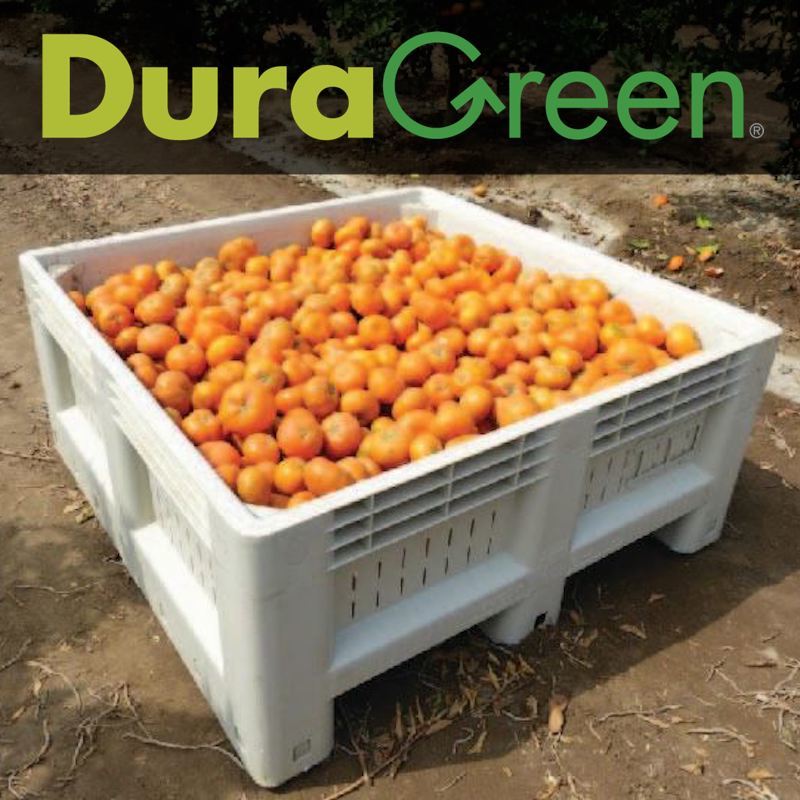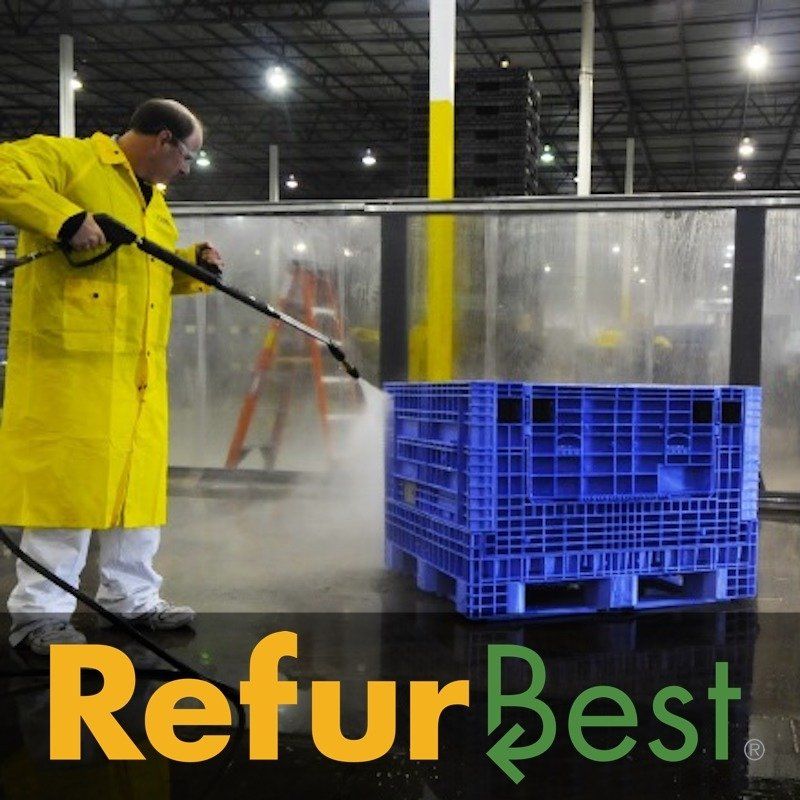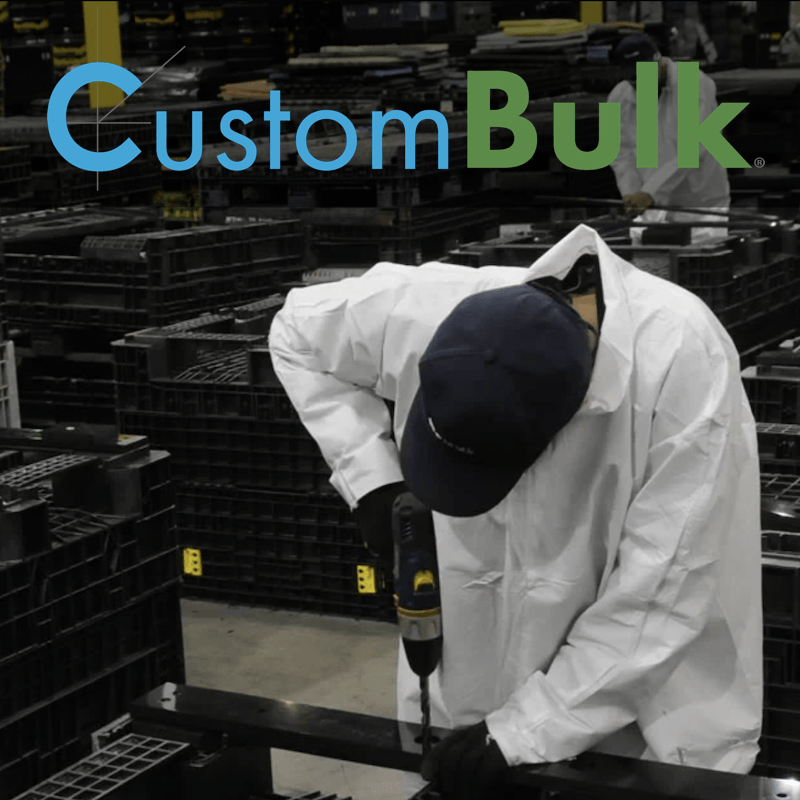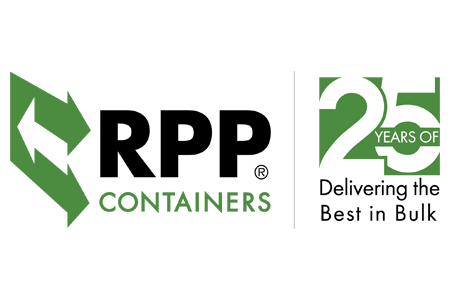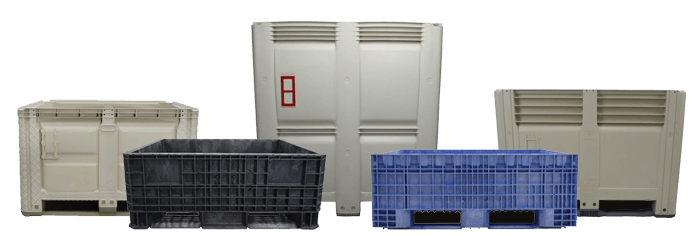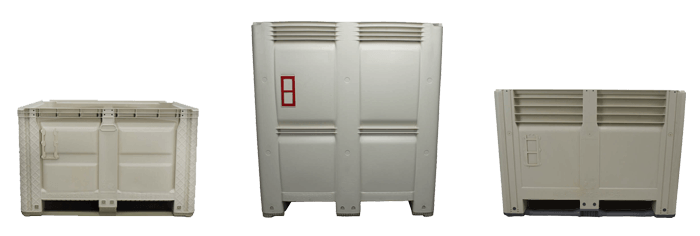What is the difference between Solid Wall Bulk Bins and Fixed Wall Containers?
Solid Wall Bulk Bins Vs. Fixed Wall Containers
At RPP Containers, we stock a variety of different sizes in collapsible containers, but did you know that we also carry non-collapsible containers? Non-collapsible containers are used for lots of different applications in the packaging world. We offer several different options of non-collapsible containers. Some are considered “solid wall,” and some are considered “fixed wall.” So how will you know which one you need? I will break the differences down below!
Solid Wall Bulk Bins
While the solid wall bulk bin and fixed wall container can be used for the same application, there are some major differences between the two that can help determine which one best fits your intended use. These were initially invented to replace wood bins in various agricultural/food applications, beginning with solid wall bulk bins. They are made of polypropylene plastic and FDA materials, making them an excellent option for use in the wine industry, food processing plants, bringing applications, and powders. Another feature of this container design is the rounded corners and the smooth surfaces- these two make the container easy to sanitize, which is ideal for food applications to ensure sanitization standards. Over the years, solid wall bulk bins have also gained popularity in liquid applications because of their watertight design. The solid wall bulk bin is free of seams, holes, and anywhere water could escape because of its single-piece mold. The single piece also adds strength to the container, providing credibility and support to contain flowable materials.
Fixed Wall Bulk Containers
Moving onto the fixed wall containers, we know now that these are also non-collapsible, but what makes them different from a solid wall bulk bin? For starters, fixed-wall containers are made from high-density polyethylene. This heavy-duty plastic is typically made of recycled materials, meaning they are not FDA-approved like the solid wall bulk bins. Another main difference is their standard weight capacity. The fixed wall container was originally invented to ship small, heavy parts in the auto industry but has found its way into other various procedures. Most fixed wall containers can hold up to 2,000 lbs. of weight, whereas solid wall bulk bins can hold up to 1,300 lbs. 2,000 lbs. of material is a lot of weight- considering that the fixed wall container's tallest height option is 24". These small containers are loved for their higher weight capacity and their compactness. One last major difference between the solid wall bulk bin and the fixed wall container is that the fixed wall containers have openings at the bottom. Whether drain holes or open grid bottoms, openings allow for easy drainage.
Listed above are some of the major differences between the two non-collapsible containers, but you might find yourself in a position where either would work just fine for your use! This list is not a strict guideline on how to use the container, just some information on the origins of each and the differences! Either way, I believe it’s important to know the difference between the two to fully understand and help distinguish which option would work best for you. If you need a non-collapsible container but don’t know which one to get, you can always refer to this blog or contact one of our account managers.
Do you have questions?
Do you have an application that requires solid wall bulk bins or fixed wall bulk containers? Visit our website or call our main line at 513-489-2244 or toll-free line at 1-800-945-8304 to speak with Sarah or one of our knowledgeable account managers on how to get a quote or purchase these containers to add to your existing container fleet or start a new project.
Sarah DeNoma |Account Manager
Sarah has been with RPP Containers for several years as an account manager and has almost a decade of knowledge and experience in the bulk container industry. Sarah works diligently with all her customers to find the optimum bulk container for the customer's application.
Info Links
Other Brands
Copyright | RPP Containers.
